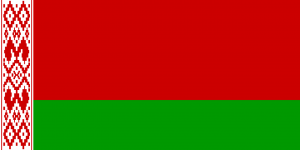Difference between revisions of "Language/Belarusian/Grammar/Cases"
m (Quick edit) |
m (Quick edit) |
||
| Line 132: | Line 132: | ||
[[Category:0-to-A1-Course]] | [[Category:0-to-A1-Course]] | ||
[[Category:Belarusian-0-to-A1-Course]] | [[Category:Belarusian-0-to-A1-Course]] | ||
==Related Lessons== | |||
* [[Language/Belarusian/Grammar/Conditional-Mood|Conditional Mood]] | |||
* [[Language/Belarusian/Grammar/Comparatives|Comparatives]] | |||
* [[Language/Belarusian/Grammar/How-to-Use-Have|How to Use Have]] | |||
* [[Language/Belarusian/Grammar/Prepositional-Case|Prepositional Case]] | |||
* [[Language/Belarusian/Grammar/Possession|Possession]] | |||
* [[Language/Belarusian/Grammar/Negation|Negation]] | |||
* [[Language/Belarusian/Grammar/Plurals|Plurals]] | |||
* [[Language/Belarusian/Grammar/Pronouns|Pronouns]] | |||
* [[Language/Belarusian/Grammar/Past-Tense|Past Tense]] | |||
* [[Language/Belarusian/Grammar/Prepositions|Prepositions]] | |||
{{Belarusian-Page-Bottom}} | {{Belarusian-Page-Bottom}} | ||
Revision as of 21:47, 14 March 2023
Belarusian is an Eastern Slavic language spoken mainly in Belarus. In this lesson, we'll be exploring the different cases used in Belarusian. Cases are important in Belarusian grammar because they show the relationship between nouns in a sentence, indicating things like the subject, object or possessive form. There are six cases in Belarusian, and we'll look at each of them in turn.
Nominative case
The nominative case is used for the subject of the sentence, as well as for direct address. In general, when a noun is in its basic, dictionary form, it is in the nominative case.
For example:
| Belarusian | Pronunciation | English |
|---|---|---|
| яблыка | yablyka | apple (nominative singular) |
| бабуля | babulya | grandmother (nominative singular) |
| кава | kava | coffee (nominative singular) |
| кнігі | knigi | books (nominative plural) |
Genitive case
The genitive case is used to show possession, as well as for certain prepositions. In general, to form the genitive case of a noun, you need to add "-а", "-я" or "-у" to the end of the nominative singular form.
For example:
| Belarusian | Pronunciation | English |
|---|---|---|
| каралеў | karaleyew | king's, of the king (genitive singular) |
| хаты | haty | house's, of the house (genitive plural) |
| зямлі | zyamli | earth's, of the earth (genitive singular) |
| кніг | knig | books (genitive plural) |
Dative case
The dative case is used to show the indirect object of a sentence, as well as for certain prepositions. In general, to form the dative case of a noun, you need to add "-у" or "-ю" to the end of the nominative singular form.
For example:
| Belarusian | Pronunciation | English |
|---|---|---|
| сыну | synu | to the son (dative singular) |
| матцы | matchy | to the mother (dative singular) |
| дружбе | druzhbye | to the friend (dative singular) |
| кнігам | knigam | to the books (dative plural) |
Accusative case
The accusative case is used for the direct object of a sentence, as well as after certain prepositions. In general, to form the accusative case of a noun, you need to add "-а" or "-я" to the end of the nominative singular form.
For example:
| Belarusian | Pronunciation | English |
|---|---|---|
| яблыка | yablyka | apple (accusative singular) |
| бабулю | babulyu | grandmother (accusative singular) |
| каву | kavu | coffee (accusative singular) |
| кнігі | knigi | books (accusative plural) |
Instrumental case
The instrumental case is used to show the means by which something is done, as well as after certain prepositions. In general, to form the instrumental case of a noun, you need to add "-ам", "-ям" or "-ом" to the end of the nominative plural form.
For example:
| Belarusian | Pronunciation | English |
|---|---|---|
| ножамі | nozhawi | with knives (instrumental plural) |
| ключом | klyuchom | with a key (instrumental singular) |
| ручкамі | ruchkawi | with pens (instrumental plural) |
| кнігамі | knigami | with books (instrumental plural) |
Locative case
The locative case is used to indicate location or place where, as well as after certain prepositions. In general, to form the locative case of a noun, you need to add "-е", "-у" or "-ы" to the end of the nominative singular or plural form.
For example:
| Belarusian | Pronunciation | English |
|---|---|---|
| кафэ | kafo | in the cafe (locative singular) |
| магазыне | magazyne | in the shop (locative singular) |
| парку | parku | in the park (locative singular) |
| кнігах | knigakh | in the books (locative plural) |
I hope this introduction to the cases in Belarusian has been helpful for you. Don't forget to practice and take your time with each case. Good luck!
Related Lessons
- Conditional Mood
- Comparatives
- How to Use Have
- Prepositional Case
- Possession
- Negation
- Plurals
- Pronouns
- Past Tense
- Prepositions
